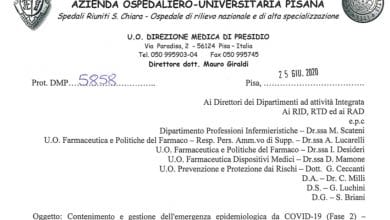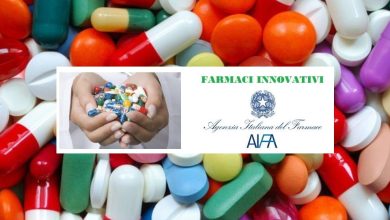
Vittorio Fontana is a geriatrician, works at the Bassini Hospital in Cinisello Balsamo (Milan), and is part of the "No Grazie Pago Io" association, made up of health professionals who do not accept anything from pharmaceutical companies and who maintain strict autonomy and critical sense . We host a talk by Dr. Fontana highlighting the influences of drug representatives on doctors' prescriptions.

by Vittorio Fontana
The most recent systematic review on the relationship between the pharmaceutical industry and doctors comes to conclusions that are already known. On the other hand, the task of a systematic review is mostly to take stock of the situation. The conclusions are precisely the following: the relationship between doctors and the pharmaceutical industry in general and more particularly between doctors and drug representatives (also known by us as scientific drug 'informants', perhaps to underlie the ambiguous nature of the profession) influences the prescribing behaviors of doctors and probably contributes to the 'irrational' (beyond scientific evidence) prescribing of branded drugs (the brand of the company that gave you the gift).
Let's start from here, one fact above all, one simple rule, follow the money: in 2012, the pharmaceutical industry spent $89.5 billion on interactions between doctors and their representatives. If it were of no use, he would invest them differently. Some studies had already shown that representatives influence prescribing behaviors. However, the evidence in this field at the time was, according to the authors, still fragmentary and contradictory. That's why the systematic review. Review done with the sacred trappings, i.e. using the Cochrane recommendations for systematic reviews and the GRADE methodology to assess the quality of the evidence (see attached table). In other words: now let's see what you find to complain about.
The main electronic databases such as PubMed, Embase, Cochrane Library and Google Scholar were searched from January 1992 (for what comes before '92 there is a previous review) to August 2016. The so-called gray literature was also analysed: from wikipedia, “Information produced at a governmental, academic or industrial level (in electronic and paper format, not controlled by commercial publishing), i.e. by organizations or bodies producing whose main activity is not publishing.”. Qualitative, ecological, econometric studies, editorials, letters to the editor, studies concerning other categories were excluded  (nurses and medical students) studies with too small samples, those that evaluated indirect influences and research funds. For the rest, very heterogeneous study designs from a methodological point of view were included, including observational studies. This is reported among the defects and possible limitations of the review itself. In the end, after having considered 2170 documents, 79 studies were considered eligible, of which only 49 included in the qualitative synthesis. Most, 27, come from the USA, 1 from Canada, 3 from Germany, 1 from France, but I would like to point out among others, in alphabetical order, Saudi Arabia, Bangladesh, Egypt, Ethiopia, India, Iran, Libya and Pakistan. As can be seen, out of 79 studies there is not even one study that comes from Italy (nothanks, shame! Incidentally). But let's get to the results.
(nurses and medical students) studies with too small samples, those that evaluated indirect influences and research funds. For the rest, very heterogeneous study designs from a methodological point of view were included, including observational studies. This is reported among the defects and possible limitations of the review itself. In the end, after having considered 2170 documents, 79 studies were considered eligible, of which only 49 included in the qualitative synthesis. Most, 27, come from the USA, 1 from Canada, 3 from Germany, 1 from France, but I would like to point out among others, in alphabetical order, Saudi Arabia, Bangladesh, Egypt, Ethiopia, India, Iran, Libya and Pakistan. As can be seen, out of 79 studies there is not even one study that comes from Italy (nothanks, shame! Incidentally). But let's get to the results.
Interactions between doctors and representatives
The authors found that interactions with representatives are the norm in the lives of physicians around the world. The frequency of interactions and the types of gifts offered and accepted depend on the public or private organization and the hierarchical position of the doctor. Young residents, for example, receive twice as many free samples as older ones. In turn, treating physicians and specialists have more interactions and receive more samples and more promotional material than residents. Those who work in the private sector receive more gifts than those who work in the public sector. The most common gifts are: drug samples, promotional materials, dinner invitations, invitations to sponsored Continuing Medical Education events, scientific journals, and free lunches.
What doctors think about interactions with representatives
Physicians generally have a favorable attitude towards representatives and perceive them as an important source of education and funding, although some studies highlight some skepticism regarding the quality of teaching and education. Conference registrations, informational lunches, departmental journal club sponsorships, anatomical models, and drug samples are considered appropriate gifts.
Most physicians view the information provided by representatives, information from sponsored conferences, and sponsored ECM as important tools for increasing their knowledge. Most studies have found that physicians do not believe that interactions with representatives impact their own prescribing behaviors. Counter-intuitively, moreover, the more gifts you receive the more you don't think they influence prescribing habits. But everyone thinks that colleagues are much more susceptible to marketing strategies. They are, colleagues, they are susceptible to the flattery of marketing, but we are not. Those who are more aware of the influence that these interactions have, generally try to have fewer interactions with representatives.
 Samples of drugs. Most doctors who accept free drug samples have a favorable attitude towards representatives. However, accepting samples leads to a greater prescription of branded drugs compared to generics / equivalents.
Samples of drugs. Most doctors who accept free drug samples have a favorable attitude towards representatives. However, accepting samples leads to a greater prescription of branded drugs compared to generics / equivalents.
Conferences held by representatives of the pharmaceutical industry. They induce bystanders to prescribe more of the company's drugs with no more evidence to support the superiority of those drugs.
Research fees and funds. Doctors who get paid to speak at sponsored symposiums or to do sponsored research are more often prescribing the drugs from the company that sponsors them.
Congress trips. Sponsored trips have a measurable impact on attendees. There was a three-fold increase in prescription drugs produced by the company that had paid for the entire stay. Faced with the evidence, however, participants continued to deny any impact on their prescribing habits.
Sponsored Continuing Education. Participants in sponsored CME are more likely to prescribe brand name drugs. Those who refuse the sponsored CME prescribe more generics and lower cost drugs (with the same evidence of effectiveness).
Discussion
The doctor-patient relationship is a relationship based on trust. Consequently, any activity that could alter this fiduciary relationship is not acceptable. Interactions between physicians and the pharmaceutical industry and its representatives can undermine this trust. The relationship between physicians and the pharmaceutical industry is a relationship that begins early in the physician's career. Already as trainees physicians are exposed to the marketing and promotional techniques of the pharmaceutical industry and this early exposure will influence future prescribing behaviours. In the sense of encouraging irrational prescribing behaviors, favoring the prescription of branded drugs (not superior in efficacy) over the prescription of cheaper equivalents. And ultimately helping to increase healthcare costs.
Hence the need to establish and implement stringent policies aimed at limiting relations between doctors and the pharmaceutical industry and its representatives. Just as educational programs are needed to raise awareness of this problem among doctors. There is also evidence that educational policies and programs aimed in this direction are effective. Further studies are needed both on the doctor-pharmaceutical industry relationship and on the benefits of educational programs.
Fickweiler F, Fickweiler W, Urbach E. Interactions between physicians and the pharmaceutical industry generally and sales representatives specifically and their association with physicians' attitudes and prescribing habits: a systematic review. BMJ Open 2017;7:doi: 10.1136/bmjopen-2017-016408
Warning: it is not a translation in the strict sense, it is a summary report and at times commented on the above systematic review.
Ed: The above article leads us to some reflections. The representative of the “No Grazie Pago Io” association, Vittorio Fontana, should know that drug representatives in Italy are called Pharmaceutical Scientific Representatives (ISF) because they are defined as such by the law, Legislative Decree 219/06, which it regulates its activity (who knows if the representative of this association knows that such a law exists and above all what it says).
The representative of the “No Grazie” association admits that he is referring to non-Italian research. It should therefore be specified that drug sales reps or representatives are more or less present all over the world, but the functions they perform are not identical going from a commercial activity to a technical/scientific activity depending on the country.
Leaving aside the non-European countries, where the activity of the ISF (for the sake of brevity we will define them thus, hoping not to offend the semantic sensibility of the representative of the association) is mainly commercial, we will pause to outline the broad outlines of the European situation
In Germany there are “Certified Pharmaceutical Consultants – Geprüfte Pharmareferent – ”(pharmaceutical sales reps – ISF) employed by a scientific service and pharmaceutical representatives, there is a law of regulation. Also in Austria the Pharmareferent is certified and regulated by law, he cannot sell drugs and must have adequate training. Companies that violate the rules will be severely fined. In Switzerland, Pharmaberater/innen (pharmaceutical consultants), in addition to providing information on drugs, organize and conduct events, carry out market research and develop marketing strategies.
In Spain the “Visitadores Médicos” are part of the sales. they have a permanent contract with a salary, reimbursement of expenses and sales incentives, but there are also sellers with commissions. In Romania, and in Eastern countries in general, there is a lack of a clear legal framework and a training system compatible with European standards. In the UK, Medical Representatives are paid a basic salary, supplemented by performance-related pay, incentives and benefits. In Belgium the situation is similar to England.
In France the Visiteur Médical or Délégué Médical does not sell even if his activity was semi-commercial in the sense that he had to promote sales. However, the French situation has radically changed after the scandal of the drug Mediator, launched on the market by Servier, which caused thousands of deaths. Responsibility for this disaster was passed on to the ISF, which led the government to renew the first ethical code of 2004, imposing a new, very restrictive one at the end of 2014 (Medical Examination Charter http://www.leem.org/article/charte-de-visite-medicale ). This has resulted in "a huge reorganization in the ISF profession".
The new Regulatory Charter has introduced a quality control of Scientific Information to doctors. The "National Observatory of promotional information" was introduced. This new body will have the purpose of "measuring the quality of information, on the basis of objective, verifiable and transparent criteria".
The doctors (sentinel) will be consulted regularly to "control" the quality and frequency of the visits of the ISFs. The doctors (sentinel) will be chosen on the basis of a panel that will change cyclically. Irregular behavior will be reported to the National Agency for Drug Safety (MSNA) which will take the necessary measures. The so-called “medical representative” has been abolished.
In Italy, Legislative Decree 219/06 regulates the activity of the ISF. They must report to a Scientific Service independent of the Marketing or Sales Management. National law, regional laws and regulations, various court rulings and Cassation, prohibit the ISF from any commercial activity or sale.
It should be considered that the law prohibits any advertising of prescription drugs and that the only deputy to inform doctors (not to promote it) is the ISF. It should be considered that not all new drugs pass through renowned scientific journals and not all doctors have the opportunity or the time to research them (but if they don't know they exist, what are they looking for?). How would pharmaceutical companies, which are not Opere Pie, make people aware of the existence of their drugs? Perhaps for the distinguished representative of the "no thanks" association, the solution is to eliminate the ISF and nationalize the whole sector? And who would finance the research, the state? Not even China where the pharmaceutical industry in the production of generics is very thriving (unfortunately not always of quality).
Articles like the one reported lead nowhere, they don't go to the root of the problem, reducing everything to the fault of the ISF.
We would dare to suggest to the distinguished representative of the "no thanks" association to get better information and that the solution is not the abolition of the ISF but to expect that its activity complies with the rules of law and to denounce the transgressors.
Sergio Cardinals (Filctem). Scientific informants of the drug and Doctors of public and affiliated health facilities.
This is the virtuous and ethical relationship, for checking the correct use of resources, guaranteeing the best possible care for all citizens. The training and scientific information of health professionals is the very guarantee of maintaining public health in our country. Breaking this balance means undermining the spine of the same, libit was the road to private healthcare, the prerogative of a few rich people, and whose only goal is to guarantee dividends to shareholders and investment funds.
Some regional resolutions, the layoffs implemented by pharmaceutical companies, the lack of interest of the State in Public Health, are the elements that act simultaneously towards the destruction of the system.
A State that guarantees lobbies to the detriment of the community of citizens, not only no longer represents their interests but MUST BE FIGHTED WITH ALL FORCES, FORWARD WITH ALL. (Facebook)
Related news: They are stealing our health care





